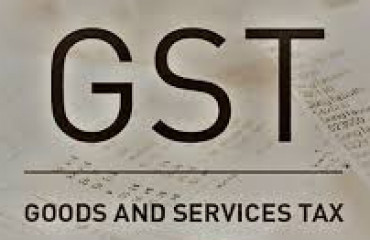
New Delhi: The Union government is considering a demand for reducing taxes on flex-fuel, or dual-fuel, vehicles, a move that could accelerate the push for cleaner transportation.
New Delhi: The Union government is considering a demand for reducing taxes on flex-fuel, or dual-fuel, vehicles, a move that could accelerate the push for cleaner transportation.
The ministry of heavy industries and the ministry of road transport and highways are in talks with stakeholders and may recommend a rationalization of goods and services tax (GST) on flex-fuel vehicles post the consultations, said two people familiar with the developments.
Following this, a final proposal by the finance ministry would then be placed before the GST Council for approval, they added.
Flex-fuel vehicles are equipped with internal combustion engines but designed to run on more than one fuel. They are primarily meant to run on biofuels such as ethanol and methanol, or a blend of biofuels and conventional fuels.
The 10% ethanol-blended petrol currently available in the country doesn't require flex-fuel vehicles but higher blends would.
The ministry of road transport has been pushing automakers to manufacture flex-fuel vehicles as the government targets use of cleaner fuels, aiming to reduce dependence on oil imports.
"The ministries have received several industry representations seeking reduction in GST, which is currently at 28%. The industry is concerned that both high GST and compensation cess would make adoption of these environmentally friendly vehicles difficult," said one of the two persons mentioned above.
The second person said the talks are underway and a consensus is yet to be arrived as some stakeholders are against GST rationalization for flex-fuel vehicles.
"A final decision on putting forward the proposal for a rate cut to the finance ministry will be taken once the talks are over," this person said.
The ministries of heavy industries, and road transport and highways did not immediately reply to queries on the matter.
A GST of 28% is currently levied on flex-fuel vehicles, similar to that for conventional internal combustion engine-based vehicles, while the levy on electric vehicles is 5%.
Industry bodies have requested parity in the tax rates for flex-fuel and electric vehicles.
In December 2021, the government advised automakers in India to start manufacturing flex-fuel vehicles and flex-fuel strong hybrid electric vehicles, complying with BS-6 norms. Electrified flex-fuel vehicles provide the option of advanced batteries along with flex-fuel engines.
Nitin Gadkari, the Union minister for road transport and highways, had said that in line with the government's vision to reduce crude oil imports and policy on promoting ethanol as a transport fuel, guidelines for use and development of flex-fuel engines and vehicles would be formulated.
The segment is, however, yet to pick up. In August, Toyota Kirloskar Motor unveiled a prototype of the world's first BS 6 (Stage II) electrified flex-fuel vehicle.
The push for biofuels and flex-fuel vehicles comes simultaneously with the government's focus on promoting electric vehicles as it has set an ambitious net-zero target of 2070, and decarbonization of mobility is a major requirement for lowering overall carbon emissions.
To accelerate the introduction of flex-fuel vehicles, the government has included automobile and auto components for flex-fuel engines in its production-linked incentives (PLI) scheme.
Under the ethanol-blending programme, all petrol pumps in the country already sell 10% ethanol-blended petrol. The target is to graduate to 20% ethanol-blended petrol by 2025.
It is expected that higher percentages of ethanol will be blended in petrol in the next five years, requiring mass availability of flex-engine vehicles.
